Filter by
Empirical Research in Statistics Education
This ICME-13 Topical Survey provides a review of recent research into statistics education, with a focus on empirical research published in established educational journals and on the proceedings of important conferences on statistics education. It identifies and addresses six key research topics, namely: teachers’ knowledge; teachers’ role in statistics education; teacher preparation; stud…
- Edition
- -
- ISBN/ISSN
- 978-3-319-38968-4
- Collation
- VII, 37
- Series Title
- -
- Call Number
- -

Writing for Publication Transitions and Tools that Support Scholars’ Success
This book offers systematic instruction and evidence-based guidance to academic authors. It demystifies scholarly writing and helps build both confidence and skill in aspiring and experienced authors. The first part of the book focuses on the author’s role, writing’s risks and rewards, practical strategies for improving writing, and ethical issues. Part Two focuses on the most common writin…
- Edition
- 1
- ISBN/ISSN
- 978-3-319-31650-5
- Collation
- -
- Series Title
- -
- Call Number
- -

Envisioning Criminology Researchers onResearch as a Process of Discovery
This book covers research design and methodology from a unique and engaging point of view, based on accounts from influential researchers across the field of Criminology and Criminal Justice. Most books and articles about research in criminology and criminal justice focus on how the research was carried out: the data that were used, the methods that were applied, the results that were achieved…
- Edition
- -
- ISBN/ISSN
- 978-3-319-15868-6
- Collation
- 14 b/w illustrations, 16 illustrations in colour
- Series Title
- -
- Call Number
- -
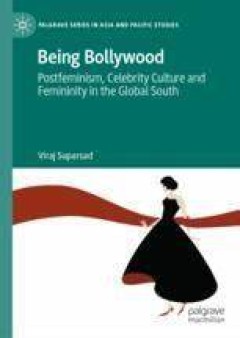
Being Bollywood
Through engaging media coverage of the public lives of Bollywood actresses, this book unveils understandings of idealized femininity and gender within this cultural context. Beyond its own borders, such a context is unique given the global relevance of content from and about Bollywood with members of the diaspora as well as those culturally Indian individuals that are no longer part of the dias…
- Edition
- 1
- ISBN/ISSN
- 978-981-99-5700-2
- Collation
- Gender
- Series Title
- -
- Call Number
- 305.3

Engineering Education 4.0 Excellent Teaching and Learning in Engineering Sci…
This book presents a collection of results from the interdisciplinary research project “ELLI” published by researchers at RWTH Aachen University, the TU Dortmund and Ruhr-Universität Bochum between 2011 and 2016. All contributions showcase essential research results, concepts and innovative teaching methods to improve engineering education. Further, they focus on a variety of areas, includ…
- Edition
- 1
- ISBN/ISSN
- 978-3-319-46916-4
- Collation
- 83 b/w illustrations, 245 illustrations in colour
- Series Title
- -
- Call Number
- -
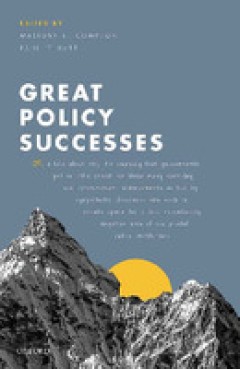
Great Policy Successes
"With so much media and political criticism of their shortcomings and failures, it is easy to overlook the fact that many governments work pretty well much of the time. Great Policy Successes turns the spotlight on instances of public policy that are remarkably successful. It develops a framework for identifying and assessing policy successes, paying attention not just to their programmatic out…
- Edition
- -
- ISBN/ISSN
- 9780198843719
- Collation
- -
- Series Title
- -
- Call Number
- -
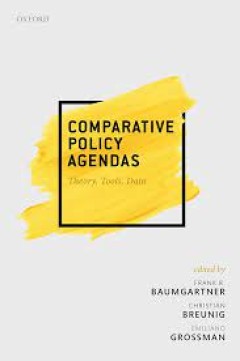
Comparative Policy Agendas Theory, Tools, Data
The Comparative Agendas Project (CAP) brings together data on government activities in over twenty countries, and provides a consistent categorizing system to understand when a given institution of government in a particular country took action on any issue of public policy. All topics are covered, comprehensively, over several decades, in some countries going back to World War II. Because of t…
- Edition
- -
- ISBN/ISSN
- 9780198835332
- Collation
- -
- Series Title
- -
- Call Number
- -
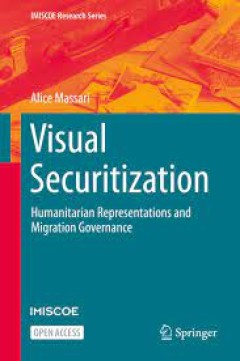
Visual Securitization Humanitarian Representations and Migration Governance
This open access book offers an innovative account of how relief organizations’ visual depiction of Syrian displacement contributes to reproduce and reinforce a securitized account of refugees. Through visual analysis, the book demonstrates how the securitization process takes place in three different ways. First of all, even if marginally, it occurs through the reproduction of mainstream med…
- Edition
- -
- ISBN/ISSN
- 9783030711436
- Collation
- -
- Series Title
- -
- Call Number
- -
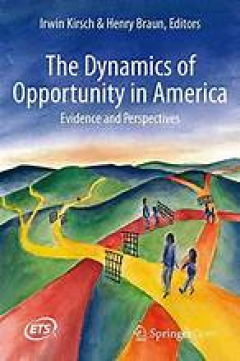
The Dynamics of Opportunity in America
Across the country, our children are beginning life from very different starting points. Some have aspirations and believe they can be achieved. For too many others, aspirations are tempered, if not dashed, by the sobering realities of everyday life. These different starting points place children on distinctly different trajectories of growth and development, ultimately leading to vastly differ…
- Edition
- 1
- ISBN/ISSN
- 978-3-319-25991-8
- Collation
- XXVIII, 489, 68 b/w illustrations, 18 illustrations in colour
- Series Title
- -
- Call Number
- -
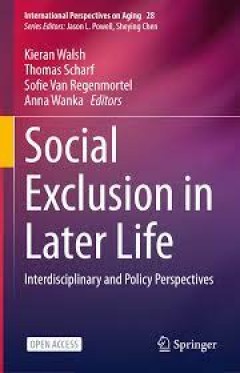
Social Exclusion in Later Life Interdisciplinary and Policy Perspectives
Drawing on interdisciplinary, cross-national perspectives, this open access book contributes to the development of a coherent scientific discourse on social exclusion of older people. The book considers five domains of exclusion (services; economic; social relations; civic and socio-cultural; and community and spatial domains), with three chapters dedicated to analysing different dimensions of …
- Edition
- -
- ISBN/ISSN
- 9783030514068
- Collation
- -
- Series Title
- -
- Call Number
- -
 Computer Science, Information & General Works
Computer Science, Information & General Works  Philosophy & Psychology
Philosophy & Psychology  Religion
Religion  Social Sciences
Social Sciences  Language
Language  Pure Science
Pure Science  Applied Sciences
Applied Sciences  Art & Recreation
Art & Recreation  Literature
Literature  History & Geography
History & Geography